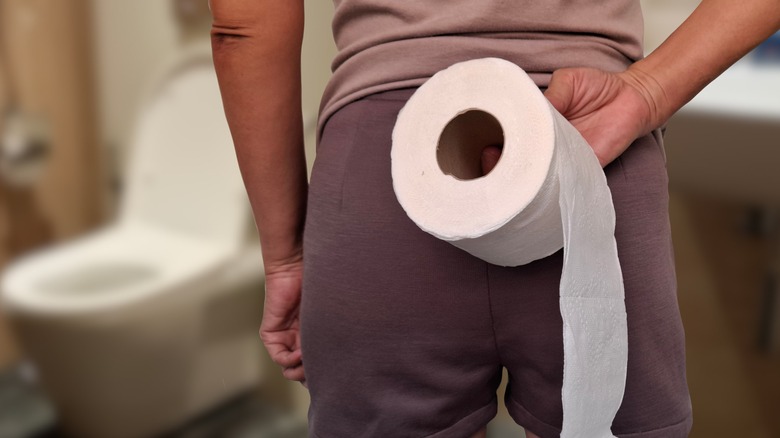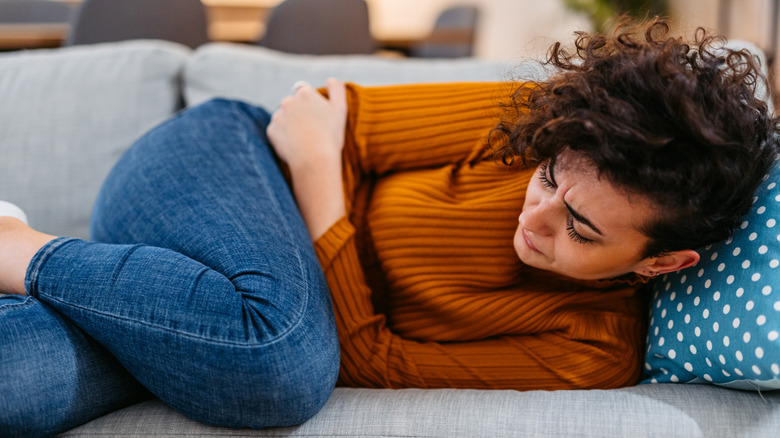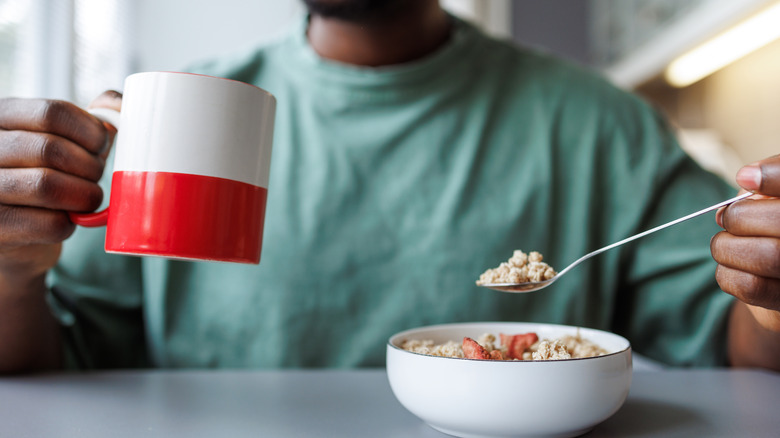Holding Your Poop Can Increase The Risk Of This Dangerous Condition
A number of things can happen to our body when we hold in our poop. Resisting a bowel movement when nature calls can majorly backfire when it comes to our health, sometimes making us more susceptible to certain health conditions, such as appendicitis. "Typically, holding poop or being constipated is not a direct cause of appendicitis, [but] it can potentially increase the risk in certain circumstances," Dr. Jason Singh, Chief Medical Officer and Physician at One Oak Medical, told Health Digest in an exclusive interview.
Dr. Singh explained that this can be the case for people with severe constipation. As per the National Institute of Diabetes and Digestive and Kidney Diseases (NIDDK), a patient may be diagnosed with constipation if they poop less than three times a week, experience pain or strain during bowel movements, or if stool produced is dry or lumpy. Because holding in our poop can potentially increase the risk of constipation (per Carolina Digestive Health Associates), it's important to answer nature's call when it strikes in order to help ensure the health of our appendix.
How severe constipation may increase the risk of appendicitis
Should poop build up in the colon, Dr. Singh explained that people who are severely constipated potentially run the risk of developing appendicitis due to increased pressure placed on the organ. "In some cases, this pressure can cause the appendix to become obstructed, inflamed, and then leading to an increased risk of appendicitis," he stated.
People with appendicitis, which commonly affects those between the ages of 10 and 30, may experience pain that initially strikes near the navel and/or on the right side of the lower abdomen. Additional warning signs from your appendix that you shouldn't ignore include increased pain when moving, nausea, vomiting, mild fever, and constipation. Seek emergency medical care in the event of severe abdominal symptoms. If left untreated, appendicitis can lead to a ruptured appendix or the development of abscesses from subsequent infection, requiring antibiotic treatment and surgical removal of the organ, according to Mayo Clinic experts.
Lifestyle changes that can promote gut motility
Most often, however, cases of appendicitis are unrelated to constipation, Dr. Singh emphasized. "Keep in mind this is not common as most cases of appendicitis are caused by other factors, such as a buildup of lymphoid tissue, genetic predisposition, or an infection spreading from the gastrointestinal tract," he told Health Digest.
Just like with appendicitis, you don't want to leave chronic constipation untreated. Mayo Clinic experts explain that doing so can increase the risk of hemorrhoids, anal fissures, rectal prolapse, or fecal impaction. To support the health of our gastrointestinal tract, Dr. Singh encourages eating a fiber-rich diet, which can help keep things chugging along in the gut and make bowel movements easier. Keeping up our fluid intake, prioritizing exercise, and not holding in our poop are also essential to our digestive health. If recommended by your doctor, laxative medications can also help ease symptoms of constipation.
Learn more about Dr. Jason Singh and services provided at One Oak Medical



